Greatest Writers of All Time
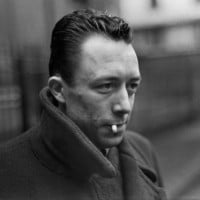 Albert Camus (7 November 1913 – 4 January 1960) was a French philosopher, author, and journalist. He is best known for such novels as L’Étranger (The Stranger, 1942), La Peste (The Plague, 1947), and La Chute (The Fall, 1956). He received the 1957 Nobel Prize for Literature.
Albert Camus (7 November 1913 – 4 January 1960) was a French philosopher, author, and journalist. He is best known for such novels as L’Étranger (The Stranger, 1942), La Peste (The Plague, 1947), and La Chute (The Fall, 1956). He received the 1957 Nobel Prize for Literature. Albert Camus, born on the 7 November 1913, died on the 4 January 1960. Was a French philosopher, author, and journalist. His views contributed to the rise of the philosophy known as absurdism. He wrote in his essay The Rebel that his whole life was devoted to opposing the philosophy of nihilism while still delving deeply into individual freedom.
He won the Nobel Prize in Literature in 1957.
France is the 1st country for Nobel Prizes in Literature, before USA 2nd.
Answers the daily questions we face, in a subtle, deft manner. His diaries, The Stranger,The Plague, disturbing and at the same time the essential tools to survival in an absurd world
 Antoine Marie Jean-Baptiste Roger, comte de Saint-Exupéry (29 June 1900 – 31 July 1944) was a French writer, poet, aristocrat, journalist, and pioneering aviator. He is best remembered for his novella The Little Prince (Le Petit Prince) and for his lyrical aviation writings, including Wind, Sand... read more
Antoine Marie Jean-Baptiste Roger, comte de Saint-Exupéry (29 June 1900 – 31 July 1944) was a French writer, poet, aristocrat, journalist, and pioneering aviator. He is best remembered for his novella The Little Prince (Le Petit Prince) and for his lyrical aviation writings, including Wind, Sand... read more The Little Prince (Le Petit Prince) is (except the bible) the most sold, read and beloved book in the history it has been translated in 250 languages (50 different translated editions in Chinese, 47 in Korean), even dialects like Sardinian and sold as more than 150 millions copies worldwide.
If he writes ONE book which can change the world, imagine his whole career! The best one.
I love all the books he wrote and also his so exciting life.
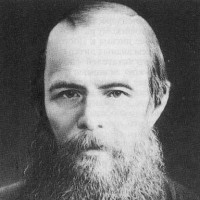 Fyodor Mikhailovich Dostoyevsky, sometimes transliterated Dostoevsky, was a Russian novelist, short story writer, essayist, journalist and philosopher.
Fyodor Mikhailovich Dostoyevsky, sometimes transliterated Dostoevsky, was a Russian novelist, short story writer, essayist, journalist and philosopher. This man is the testament to the fact that literature is not just some stories to help us make it through our daily lives, but truly something that can change the entire world. Dostoevsky had the greatest impact on 20th century thinking giants such as Sigmund Freud, Nietzsche and many other brilliant minds. We can still feel the impact of his absolute genius in our day to day lives.
His explosive power of psychoanalysis is beyond question and a crafty and masterly storyteller alongside.
Great psychologist author. Great philosopher. Genius.
 Charles Pierre Baudelaire (April 9, 1821 – August 31, 1867) was a French poet who also produced notable work as an essayist, art critic, and pioneering translator of Edgar Allan Poe... read more
Charles Pierre Baudelaire (April 9, 1821 – August 31, 1867) was a French poet who also produced notable work as an essayist, art critic, and pioneering translator of Edgar Allan Poe... read more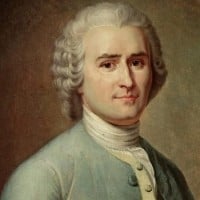
Rousseau the contrast with Descartes about Nature.
Discourse on Method (Descartes) or
A discourse upon the Origin and the Foundation of the Inequality Mankind and Profession of Faith of a Savoyard Vicar (Rousseau).
The greatest Rousseau and of course Voltaire.
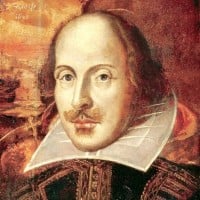 William Shakespeare was an English poet, playwright, and actor, widely regarded as the greatest writer in the English language and the world's pre-eminent dramatist.
William Shakespeare was an English poet, playwright, and actor, widely regarded as the greatest writer in the English language and the world's pre-eminent dramatist. Greatest writer in the English language and the world's pre-eminent dramatist, his plays have been translated into every major living language and are performed more often than those of any other playwright. Some of his best works are Hamlet and Romeo and Juliet
He should be the first, everlasting pattern of a true writer.
Very influential too, especially to the Lion King.
 Count Lev Nikolayevich Tolstoy, usually referred to in English as Leo Tolstoy, was a Russian writer who is regarded as one of the greatest authors of all time.
Count Lev Nikolayevich Tolstoy, usually referred to in English as Leo Tolstoy, was a Russian writer who is regarded as one of the greatest authors of all time. He is the God of all writers and a saint indeed. And no one can beat the God.
It takes someone special to write something like War And Peace.
The greatest one. Read and feel his mind
 Stephen Edwin King is an American author of contemporary horror, supernatural fiction, suspense, science fiction, and fantasy. Many of his most well-known novels include Carrie, It, The Shinning, The Stand, Misery, The Dark Tower series, and Rita Hayworth and the Shawshank Redemption, which was later... read more
Stephen Edwin King is an American author of contemporary horror, supernatural fiction, suspense, science fiction, and fantasy. Many of his most well-known novels include Carrie, It, The Shinning, The Stand, Misery, The Dark Tower series, and Rita Hayworth and the Shawshank Redemption, which was later... read more
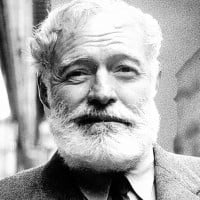 Ernest Miller Hemingway (July 21, 1899 – July 2, 1961) was an American novelist, short story writer, and journalist. His economical and understated style had a strong influence on 20th-century fiction, while his life of adventure and his public image influenced later generations. Hemingway produced... read more
Ernest Miller Hemingway (July 21, 1899 – July 2, 1961) was an American novelist, short story writer, and journalist. His economical and understated style had a strong influence on 20th-century fiction, while his life of adventure and his public image influenced later generations. Hemingway produced... read more Good writer but too overrated in my eyes.
 Victor Marie Hugo (26 February 1802 – 22 May 1885) was a French poet, novelist, and dramatist of the Romantic movement. Hugo is considered to be one of the greatest and best-known French writers... read more
Victor Marie Hugo (26 February 1802 – 22 May 1885) was a French poet, novelist, and dramatist of the Romantic movement. Hugo is considered to be one of the greatest and best-known French writers... read more Read 'Les misérables', or the first two tomes, 'notre dame de Paris', great stories, deep drama, and breath taking adventures.
But furthermore, his poems are maybe the best in the French litterature.
The Newcomers
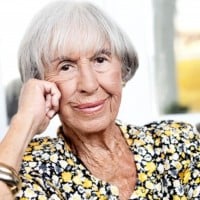
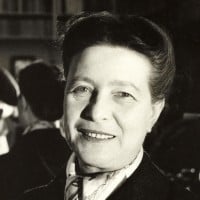
Simone De Beauvoir wrote novels, essays, biographies, autobiography and monographs on philosophy, politics and social issues. She was known for her 1949 treatise The Second Sex, a detailed analysis of women's oppression and a foundational tract of contemporary feminism; and for her novels, including She Came to Stay and The Mandarins. She was also known for her lifelong open relationship with the famous French philosopher Jean-Paul Sartre.
 Charles John Huffam Dickens (7 February 1812 – 9 June 1870) was an English writer and social critic. He created some of the world's best-known fictional characters and is regarded by many as the greatest novelist of the Victorian era... read more
Charles John Huffam Dickens (7 February 1812 – 9 June 1870) was an English writer and social critic. He created some of the world's best-known fictional characters and is regarded by many as the greatest novelist of the Victorian era... read more Arguably the most popular British writer alongside Jane Austen. His works continue to make people laugh, cry or scratch their heads. He is loved, hated but never ignored. And that is a testament to his talent as a writer.
One of the most popular and well known british writers who ever lived.
 Émile Édouard Charles Antoine Zola (2 April 1840 – 29 September 1902) was a French novelist, playwright, journalist, the best-known practitioner of the literary school of naturalism, and an important contributor to the development of theatrical naturalism.
Émile Édouard Charles Antoine Zola (2 April 1840 – 29 September 1902) was a French novelist, playwright, journalist, the best-known practitioner of the literary school of naturalism, and an important contributor to the development of theatrical naturalism. André Paul Guillaume Gide (22 November 1869 – 19 February 1951) was a French author and winner of the Nobel Prize in Literature in 1947. Gide's career ranged from its beginnings in the symbolist movement, to the advent of anticolonialism between the two World Wars.
André Paul Guillaume Gide (22 November 1869 – 19 February 1951) was a French author and winner of the Nobel Prize in Literature in 1947. Gide's career ranged from its beginnings in the symbolist movement, to the advent of anticolonialism between the two World Wars.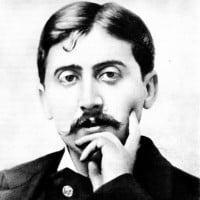 Valentin Louis Georges Eugène Marcel Proust (10 July 1871 – 18 November 1922), better known as Marcel Proust, was a French novelist, critic, and essayist. He is considered by English critics and writers to be one of the most influential authors of the 20th century.
Valentin Louis Georges Eugène Marcel Proust (10 July 1871 – 18 November 1922), better known as Marcel Proust, was a French novelist, critic, and essayist. He is considered by English critics and writers to be one of the most influential authors of the 20th century.
 John Ronald Reuel Tolkien (3 January 1892 – 2 September 1973), known by his pen name J. R. R. Tolkien, was an English writer, poet, philologist, and university professor who is best known as the author of the classic high-fantasy works The Hobbit, The Lord of the Rings, and The Silmarillion.
John Ronald Reuel Tolkien (3 January 1892 – 2 September 1973), known by his pen name J. R. R. Tolkien, was an English writer, poet, philologist, and university professor who is best known as the author of the classic high-fantasy works The Hobbit, The Lord of the Rings, and The Silmarillion. This is a disgrace to the world of readers. Shouldn't he be on #1? After all, he did write a awesome three book books series, create a whole universe, prove himself to be #1 author of the whole history of the universe, inspire millions of other authors, and let millions of people (like me) read his awesome, supreme, unbeatable, never-outdated, books. What a shame he's so low. Should be #1 or at least #2.
Arguably the godfather of modern fantasy. He took his inspiration from the likes of "beowulf" and created a whole universe now adored by so many. True genius.
 Dame Agatha Mary Clarissa Christie, Lady Mallowan, was an English crime novelist, short story writer and playwright. She is the best-selling novelist ever. She also made the longest play ever. She is remembered for making multiple mystery books including; And Then There Were None, Murder on the Orient... read more
Dame Agatha Mary Clarissa Christie, Lady Mallowan, was an English crime novelist, short story writer and playwright. She is the best-selling novelist ever. She also made the longest play ever. She is remembered for making multiple mystery books including; And Then There Were None, Murder on the Orient... read more
 Jules Gabriel Verne was a French novelist, poet, and playwright best known for his adventure novels and his profound influence on the literary genre of science fiction.
Jules Gabriel Verne was a French novelist, poet, and playwright best known for his adventure novels and his profound influence on the literary genre of science fiction. Oscar Fingal O'Flahertie Wills Wilde (16 October 1854 – 30 November 1900) was an Irish playwright, novelist, essayist, and poet. After writing in different forms throughout the 1880s, he became one of London's most popular playwrights in the early 1890s. He is remembered for his epigrams, his novel... read more
Oscar Fingal O'Flahertie Wills Wilde (16 October 1854 – 30 November 1900) was an Irish playwright, novelist, essayist, and poet. After writing in different forms throughout the 1880s, he became one of London's most popular playwrights in the early 1890s. He is remembered for his epigrams, his novel... read more Dazzling prose, just beautiful. This guy deserves to be higher
 Franz Kafka was a German-language writer of novels and short stories who is widely regarded as one of the major figures of 20th-century literature.
Franz Kafka was a German-language writer of novels and short stories who is widely regarded as one of the major figures of 20th-century literature. The one name that reverberates louder when mentioned than an atom bomb, but has a subtlety no writer will ever be able to match. He is both intimidating yet intriguing at the same time. No one like him.
Absurdity realities of our lives.
 Joanne Rowling, CH, OBE, FRSL, FRCPE, writing under the pen names J. K. Rowling and Robert Galbraith, is a British novelist, philanthropist, film and television producer and screenwriter best known for writing the Harry Potter fantasy series.
Joanne Rowling, CH, OBE, FRSL, FRCPE, writing under the pen names J. K. Rowling and Robert Galbraith, is a British novelist, philanthropist, film and television producer and screenwriter best known for writing the Harry Potter fantasy series. She is a fine author for beginners.
 François Rabelais (between 1483 and 1494 – 9 April 1553) was a French Renaissance writer, humanist, physician, Renaissance humanist, monk and Greek scholar... read more
François Rabelais (between 1483 and 1494 – 9 April 1553) was a French Renaissance writer, humanist, physician, Renaissance humanist, monk and Greek scholar... read more Jane Austen was an English novelist known principally for her five major novels which interpret, critique and comment upon the life of the British landed gentry at the end of the 18th century.
Jane Austen was an English novelist known principally for her five major novels which interpret, critique and comment upon the life of the British landed gentry at the end of the 18th century. Jorge Francisco Isidoro Luis Borges, was an Argentine short-story writer, essayist, poet and translator, and a key figure in Spanish-language literature.
Jorge Francisco Isidoro Luis Borges, was an Argentine short-story writer, essayist, poet and translator, and a key figure in Spanish-language literature.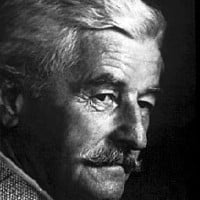 William Cuthbert Faulkner (September 25, 1897 – July 6, 1962) was an American writer and Nobel Prize laureate from Oxford, Mississippi. Faulkner wrote novels, short stories, a play, poetry, essays, and screenplays. He is primarily known for his novels and short stories set in the fictional Yoknapatawpha... read more
William Cuthbert Faulkner (September 25, 1897 – July 6, 1962) was an American writer and Nobel Prize laureate from Oxford, Mississippi. Faulkner wrote novels, short stories, a play, poetry, essays, and screenplays. He is primarily known for his novels and short stories set in the fictional Yoknapatawpha... read more Nobody played with structural conventions in such an appealing way as Faulkner did in his greatest works. All while managing to use minimal vocabulary. He was a true revolutionary and far too undervalued among his contemporaries.